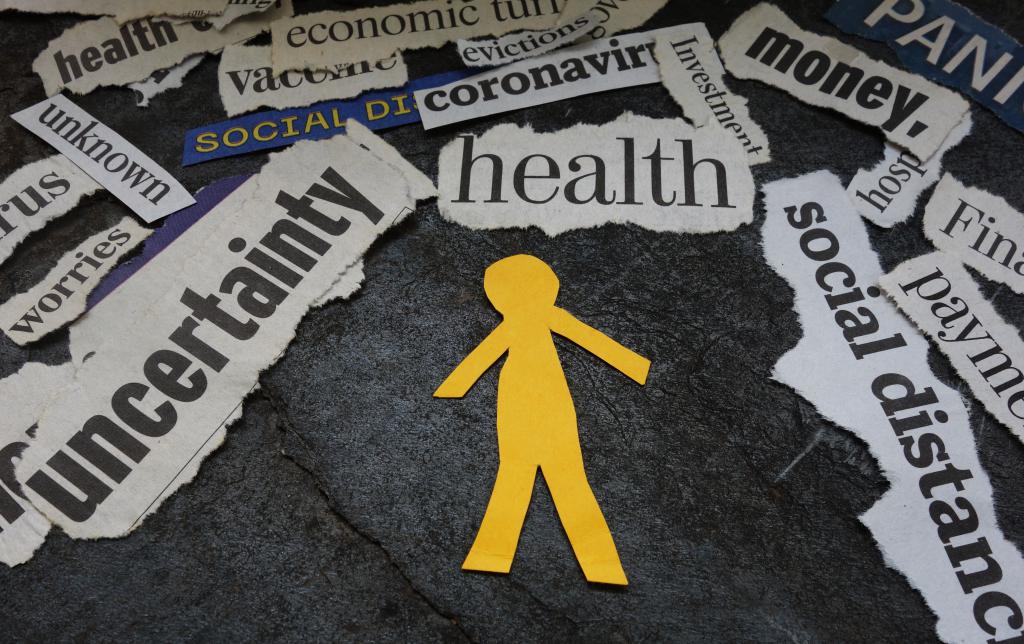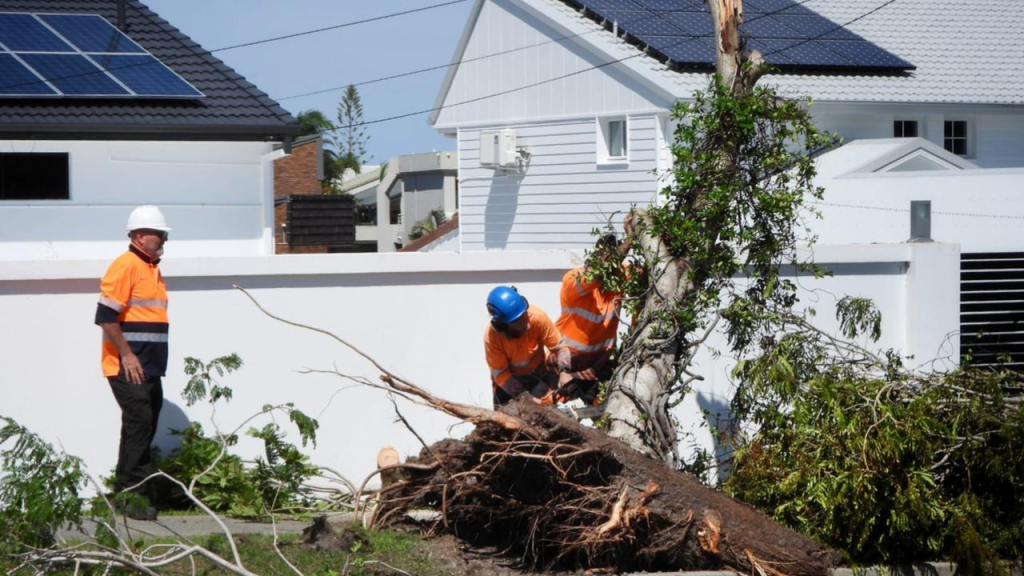The year has greatly changed the way we live and shone a light on the importance of looking after your mental health in a pandemic. To help keep us safe, it is likely that changes made to how we live our lives will remain for a while.
If your business has taken a hit this year, or you’re unable to see your friends and family interstate or overseas, it can be difficult to keep on top of how you may be feeling. Being aware of how these feelings and knowing what you can do to look after your mental wellbeing is an important part of staying healthy during this challenging time.
How we might be feeling and why
On top of the concern we’re all feeling about the health impacts of a virus like this one, COVID-19 has turned our lives upside down. All of the things we’re used to doing on a regular basis — going to school and work, catching up with friends and family, going out for dinner, playing sport, going on holidays — have changed.
Many people have lost their jobs and business have folded or entered a steep decline in turnover. There is ongoing uncertainty about how COVID-19 will affect jobs and the economy into the future. For those amongst us who work in healthcare and essential services, work pressures have never been greater.
Under these circumstances, it’s normal to feel anxious, overwhelmed, confused, sad or even bored. But these feelings can take their toll, and we all need to take the time to care for ourselves and to look out for our friends, family and colleagues.
What you can do
There are things you can do to take care of your mental health and wellbeing.
Look after your physical health
Exercising and eating well help us stay physically and mentally healthy. Getting a good night’s sleep is also a really important part of staying healthy.
Stay connected
Maintaining social connections is important to feeling safe and well. Explore ways that you can still keep in touch with family and friends while you practise physical distancing through:
- video chats
- phone calls
- online groups
- chats with neighbours while keeping 1.5 metres apart
Develop new routines
We’re used to having routines to guide our days and give us a sense of achievement. When so much seems out of our control, establishing some structure in our days will help to provide stability and a ‘new normal’.
Think about the parts of your usual routine you value the most and find ways to make these part of your day — such as having lunch with colleagues via video chat or finding an online gym class.
Take breaks
Be kind to yourself and take time just for you, even if it is just a few minutes to take some deep breaths and step outside into the fresh air. Plan your breaks and use them to do something that makes you feel calm and happy.
Reach out to others
Some people are particularly vulnerable for different reasons. They may be older, live on their own, have a chronic medical condition or live in a challenging home situation. Reaching out to give people support, if you are able, can help your mental wellbeing and make a big difference to someone else’s life.
Seek support
It’s normal to have ups and downs, and it is important to talk about how you’re feeling with family and friends. In times like these, they are likely experiencing similar feelings.
If you want to talk to someone else, but aren’t sure where to start, there are lots of great online and phone chat support services available. Head to Health is a good place to begin, and Beyond Blue has launched a dedicated coronavirus online and phone support service.
But if you are feeling anxious or depressed for an extended period, see a health professional. Doctors and other health care providers such as psychologists are consulting via video or phone.
Staying informed
It’s important to stay up-to-date with the facts, but constantly tuning in to news about COVID-19 can be overwhelming, confusing and increase anxiety.
Remember that incorrect information is easily shared, particularly via social media. Get your updates from trusted sources, such as government websites in Australia, including Australia.gov.au and health.gov.au.
Additional COVID-19 mental health support
From 9 October 2020, the Australian Government made available 10 additional Medicare subsidised psychological therapy sessions each calendar year. These extra sessions are for people experiencing severe or enduring mental health impacts from the COVID-19 pandemic, and the measures needed to contain it.
The Better Access Pandemic Support measure was previously only available to people in areas where public health orders restricted movement within the state or territory, however this requirement has been removed and the expanded measure will be available until 30 June 2022.
To access the additional sessions under the Better Access to Psychiatrists, Psychologists and General Practitioners through the Medicare Benefits Schedule (Better Access) initiative, you must:
- have a Mental Health treatment plan;
- have used the initial 10 individual Better Access sessions in the calendar year you sought a referral; and
- receive a referral for the additional 10 sessions from your reviewing GP, psychiatrist or paediatrician (reviewing practitioner).
You will need to see your GP, psychiatrist or paediatrician (reviewing practitioner). Your practitioner can review your Mental Health Treatment plan or use another consultation item to refer you for the additional sessions.
Get help now
If you need help right now, it is available 24 hours a day, 7 days a week, anywhere in Australia.
Navigating through times of financial stress can be tolling on anyone involved. It can often lead to feelings of isolation and even depression. It is important to know that there are organisations that devote all of their time to supporting people in this position. Unfortunately, Arabon Accountants are not qualified in this field and are unable to provide personal counselling or mental health advice.
If you need support, there are free support lines available that may be helpful to you.
The below is a list of free support lines you can access:
| Financial Counselling Australia hotline | 1800 007 007 | www.financialcounsellingaustralia.org.au |
| Salvation Army Moneycare | 13 72 58 | www.salvos.org.au |
| Black Dog Institute | www.blackdoginstitute.org.au | |
| Lifeline Crisis Support, suicide prevention | 13 11 14 | www.lifeline.org.au |
| Beyond Blue depression, anxiety | 1300 224 636 | www.beyondblue.org.au |
| MensLine Australia | 1300 789 978 | www.mensline.org.au |
Resources
You can also find information at:
- Beyond Blue — Looking after your mental health during the coronavirus outbreak
- Australian Psychological Society — Tips for coping with coronavirus anxiety
- Headspace — How to cope with stress related to coronavirus (COVID-19)
- Black Dog Institute — Coronavirus anxiety resources
- Comcare — Looking after your mental health
Contact
If you are distressed, check the Head to Health website for:
- links to mental health online and phone support
- resources and services that can help if you’re experiencing mental health concerns or trying to support someone else
National Coronavirus Helpline
Call this line if you are seeking information on coronavirus (COVID-19) or help with the COVIDSafe app. The line operates 24 hours a day, seven days a week: 1800 020 080.
Source: Australian Department of Health






